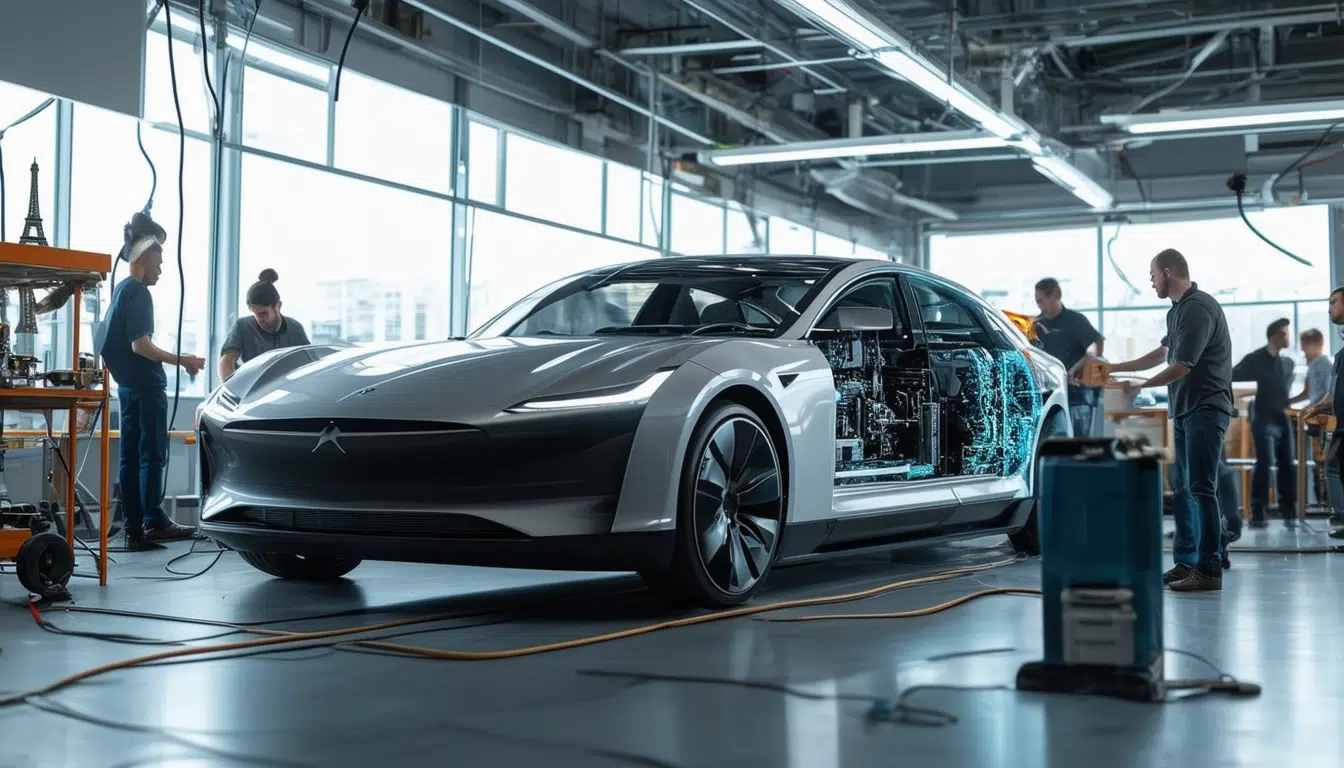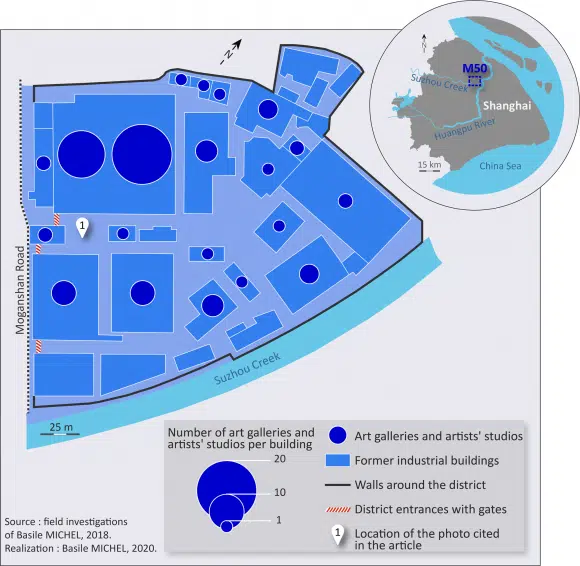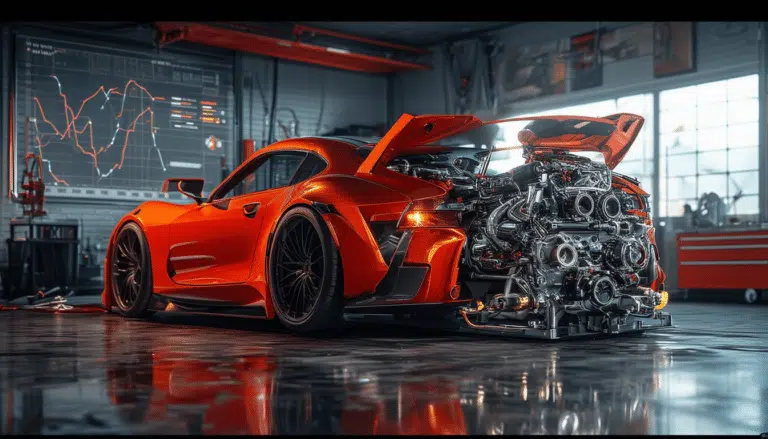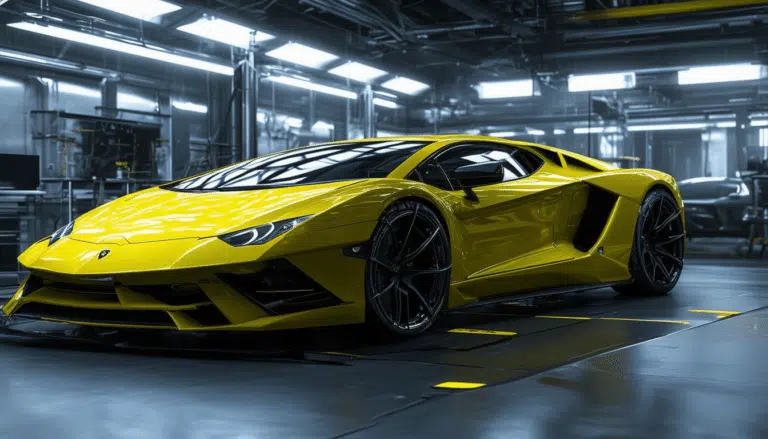The innovative French creation that turns internal combustion engine vehicles into plug-in hybrids

A remarkable innovation from France has arrived in the automotive field with the ambition to revolutionize the way conventional motor vehicles operate. It is a kit capable of transforming these vehicles into plug-in hybrids, offering a more sustainable and economical alternative to purchasing new electric models. This development, backed by the French government, promises to extend the lifespan of combustion cars while reducing their carbon footprint, paving the way for a greener mobility future.
A French company has developed an innovative kit that allows the transformation of conventional combustion engine vehicles into plug-in hybrids. This technological advance represents a sustainable solution that could extend the lifespan of traditional cars, providing them with a more efficient and environmentally friendly operation without the need for major modifications.
Sustainable Transformation: The Twin-E Kit
The kit, known as Twin-E, is an engineering achievement that is revolutionizing the way we approach sustainable mobility. Developed by the multinational Green Corp Konnection (GCK), this device has been designed to convert diesel vehicles into plug-in hybrids. Despite the technical challenges involved in its development, the company has successfully implemented this system in a variety of models.
Support from the French Government
The French Government has provided its support for the project, stating that vehicles equipped with this kit could benefit from existing subsidies for electrification. Thanks to these policies, cars not only remain operational but also comply with emission regulations by obtaining the Zero Label.
Technical Details of the Kit
The innovative kit includes the installation of a battery in the trunk, providing an electric range of up to 70 kilometers. To achieve this performance, it is necessary to replace the gearbox with an epicyclic type, common in hybrid vehicles, and attach an additional battery. This transformation allows the car to operate in several modes: electric, hybrid, or diesel.
Cost and Transformation Time
The transformation process requires a full day’s work and an approximate cost of 7,000 euros, depending on the vehicle. This investment, although significant, is accompanied by an official two-year warranty offered by the company.
Energy Efficiency and Driving Modes
An electric motor integrates into the system providing between 41 and 54 horsepower of additional power depending on the model. The car can operate in electric mode for urban trips or hybrid mode for longer journeys, thus meeting the demands for low emissions. Additionally, it incorporates an energy regeneration system during stops.
Improvements in the Vehicle Interior
The interior of the car is also renovated with the installation of a floating screen that allows the driver to monitor energy flow and optimize their driving.
Impact and Future of the Conversion to Plug-in Hybrids
The conversion of combustion engine vehicles to plug-in hybrids represents a significant advancement in the automotive industry. The innovation developed by the French company Green Corp Konnection brings multiple benefits that go beyond simple technological improvement. By allowing older vehicles to adapt to current environmental standards, it opens the door to more sustainable mobility.
One of the standout features of this approach is its ability to make existing vehicles environmentally viable, thus avoiding the resource waste involved in producing new cars. In a world where sustainability is increasingly crucial, every step towards reuse and resource optimization is invaluable.
Furthermore, the introduction of the Twin-E kit, which offers significant range with low emissions, is not only a short-term solution for diesel vehicle owners but also represents a trend towards the future. The possibility of these cars obtaining the Zero Label also allows access to tax benefits and subsidies, further encouraging the transition to cleaner technologies.
Although the conversion is not a process exempt from technical challenges, the advances made so far demonstrate that it is a viable and practical option. The flexibility to switch between electric, hybrid, and diesel modes offers essential adaptability for different driving needs and journeys.
In conclusion, the French conversion kit not only transforms vehicles but also initiates a paradigm shift in how we approach mobility. By adopting solutions like this, the automotive industry can move towards a future where technology and sustainability coexist harmoniously, benefiting both consumers and the environment.





